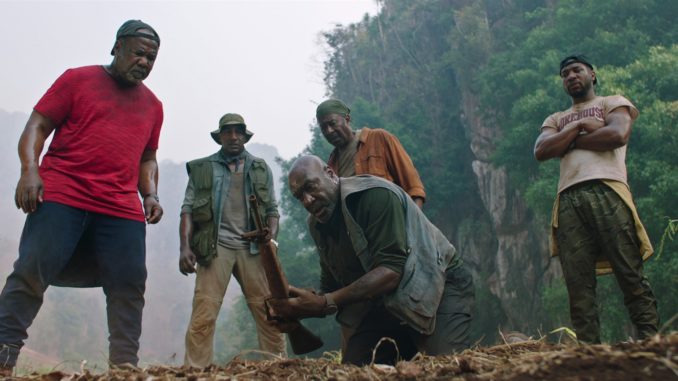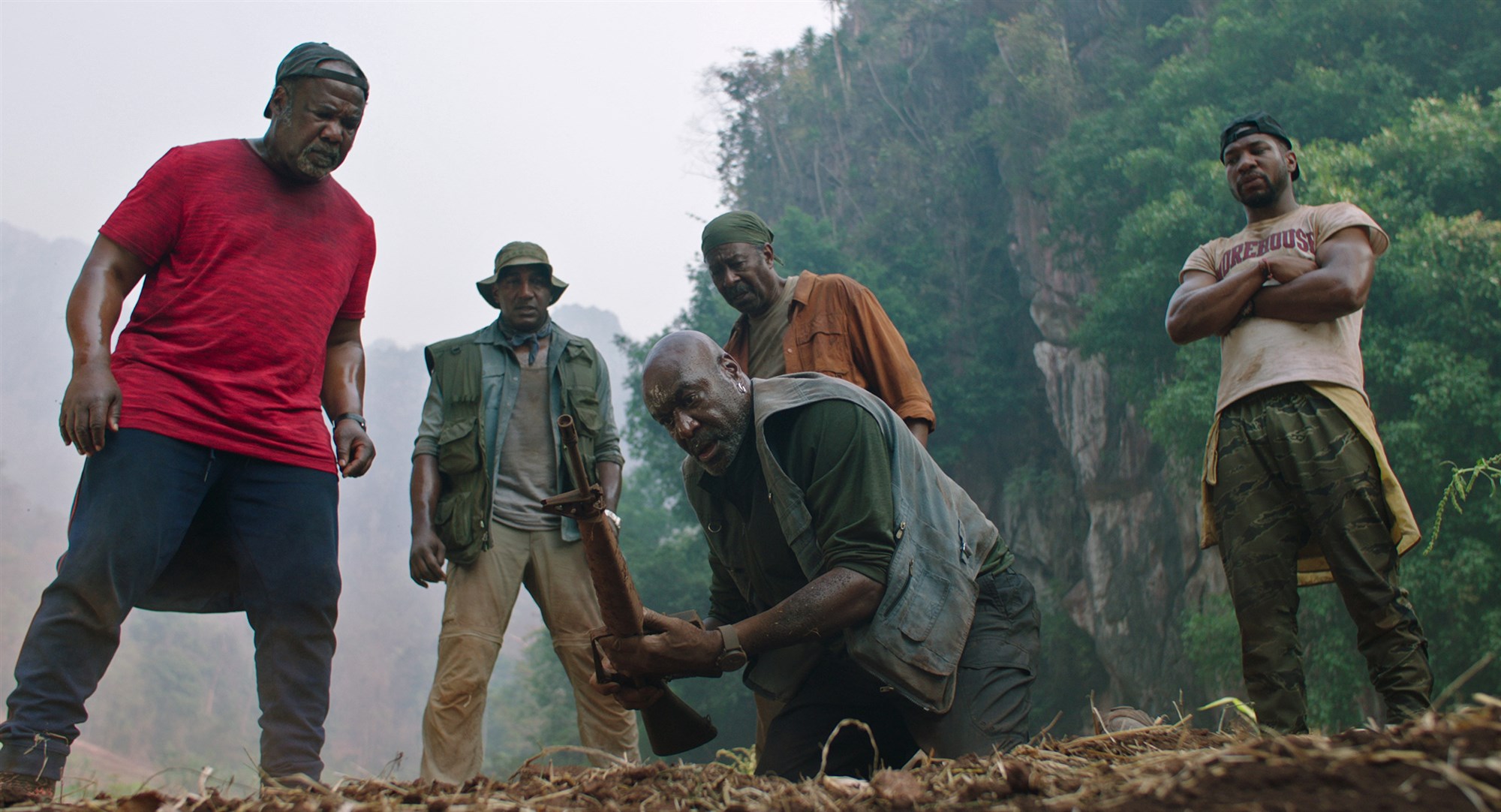
By Aramide A. Tinubu – The disregard of Black life in pursuit of the American dream is ingrained in our history. Lee presents it in technicolor for audiences in this film.
 The film follows four Vietnam War veterans who call themselves Da Bloods — Otis (Clarke Peters), Eddie (Norm Lewis), Melvin (Isiah Whitlock Jr.) and Paul (an absolutely gripping Delroy Lindo) — as they return to Vietnam to retrieve the remains of their fallen comrade and the fifth Blood, Stormin’ Norman (Chadwick Boseman). Norm died in Vietnam, but his guidance and teachings on Black history and the Black experience have remained with his brothers throughout their lives.
The film follows four Vietnam War veterans who call themselves Da Bloods — Otis (Clarke Peters), Eddie (Norm Lewis), Melvin (Isiah Whitlock Jr.) and Paul (an absolutely gripping Delroy Lindo) — as they return to Vietnam to retrieve the remains of their fallen comrade and the fifth Blood, Stormin’ Norman (Chadwick Boseman). Norm died in Vietnam, but his guidance and teachings on Black history and the Black experience have remained with his brothers throughout their lives.
During one pivotal scene, Otis schools the Da Bloods’ guide Vinh (Johnny Tri Nguyen), when he suggests that George Washington is the founder of America. Otis explains that Washington would not exist without the labor of the 123 Black people he owned to prop him up.
And, of course, there are other discussions about white wealth and black death: At another point, Otis says, “They put our poor Black asses out here on the front line,” and Melvin adds, “Killing us like flies.”
Lee drives home his point even further with Paul’s adult son, David (Jonathan Majors), who accompanies the four buddies on their trip. Though he’s wearing a T-shirt from the esteemed Morehouse College for much of the film, David finds himself in the same war zone that his father never truly escaped. Being a “respectable” Black person, Lee’s film says, guarantees you nothing.
Though it might be the most evocative Vietnam War film in recent times, Lee certainly isn’t the first director to capture the Black veteran experience on-screen.
Then, in 1995, two very different films about the Black veteran experience premiered. The HBO movie “The Tuskegee Airmen” focused on the racism and injustices that the all-Black 332nd Fighter Group faced in the Deep South during World War II. These prejudices continued even as they were called upon to protect their white counterparts who were dropping bombs on Germany. (In 2012, Anthony Hemingway would direct the glossy — though less effective — “Red Tails,” which introduced a new generation to the Tuskegee Airmen’s story.)
The idea that Black American veterans’ battles have extended well beyond their tours of duty was also beautifully captured by Dee Rees in 2017’s “Mudbound,” a story of two families — one Black and one white — stuck together on a rural Mississippi farm. Their lives are altered forever when the end of World War II brings their loved ones home. Rees depicts the injustices that the Jacksons’ eldest son, Ronsel (Jason Mitchell), faces upon returning to the Jim Crow South after living freely as a sergeant overseas.
Black Americans cannot afford to buy into the patriotism to which white Americans often cling; too much has been done to us, often in its name. Black veterans and Black people overpaid for our rights to live and thrive in this country only to often be denied one, the other or both. Therefore, it is our right to either stand in reverence of Old Glory or turn our back on her in disgust.
Black blood has been spilled on the battlefields and in the streets of this nation from well before this country was even founded and every day afterward. Yet, the promise of America has never come to pass for us.


Be the first to comment